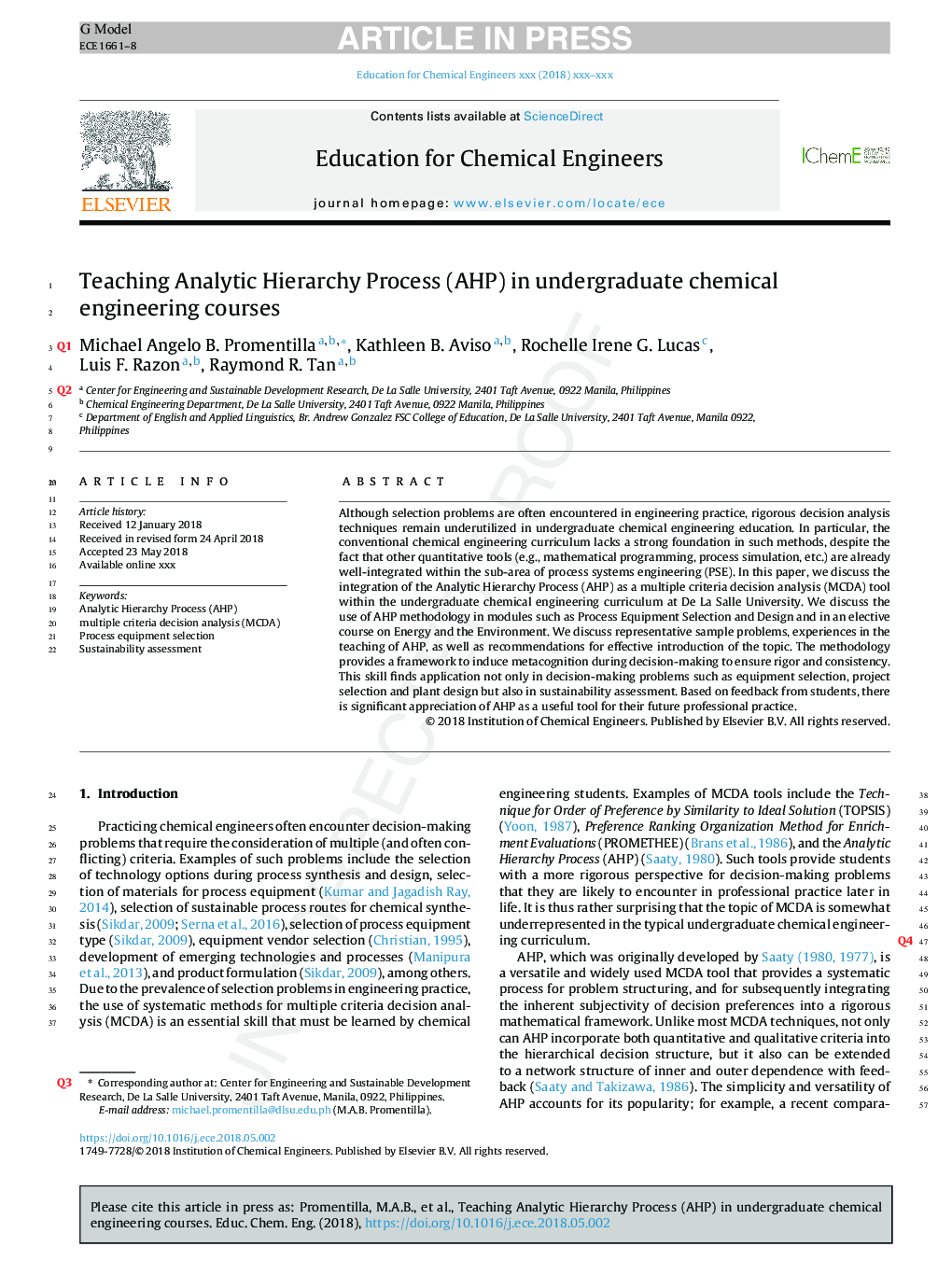| Article ID | Journal | Published Year | Pages | File Type |
|---|---|---|---|---|
| 6600536 | Education for Chemical Engineers | 2018 | 8 Pages |
Abstract
Although selection problems are often encountered in engineering practice, rigorous decision analysis techniques remain underutilized in undergraduate chemical engineering education. In particular, the conventional chemical engineering curriculum lacks a strong foundation in such methods, despite the fact that other quantitative tools (e.g., mathematical programming, process simulation, etc.) are already well-integrated within the sub-area of process systems engineering (PSE). In this paper, we discuss the integration of the Analytic Hierarchy Process (AHP) as a multiple criteria decision analysis (MCDA) tool within the undergraduate chemical engineering curriculum at De La Salle University. We discuss the use of AHP methodology in modules such as Process Equipment Selection and Design and in an elective course on Energy and the Environment. We discuss representative sample problems, experiences in the teaching of AHP, as well as recommendations for effective introduction of the topic. The methodology provides a framework to induce metacognition during decision-making to ensure rigor and consistency. This skill finds application not only in decision-making problems such as equipment selection, project selection and plant design but also in sustainability assessment. Based on feedback from students, there is significant appreciation of AHP as a useful tool for their future professional practice.
Keywords
Related Topics
Physical Sciences and Engineering
Chemical Engineering
Chemical Engineering (General)
Authors
Michael Angelo B. Promentilla, Kathleen B. Aviso, Rochelle Irene G. Lucas, Luis F. Razon, Raymond R. Tan,
